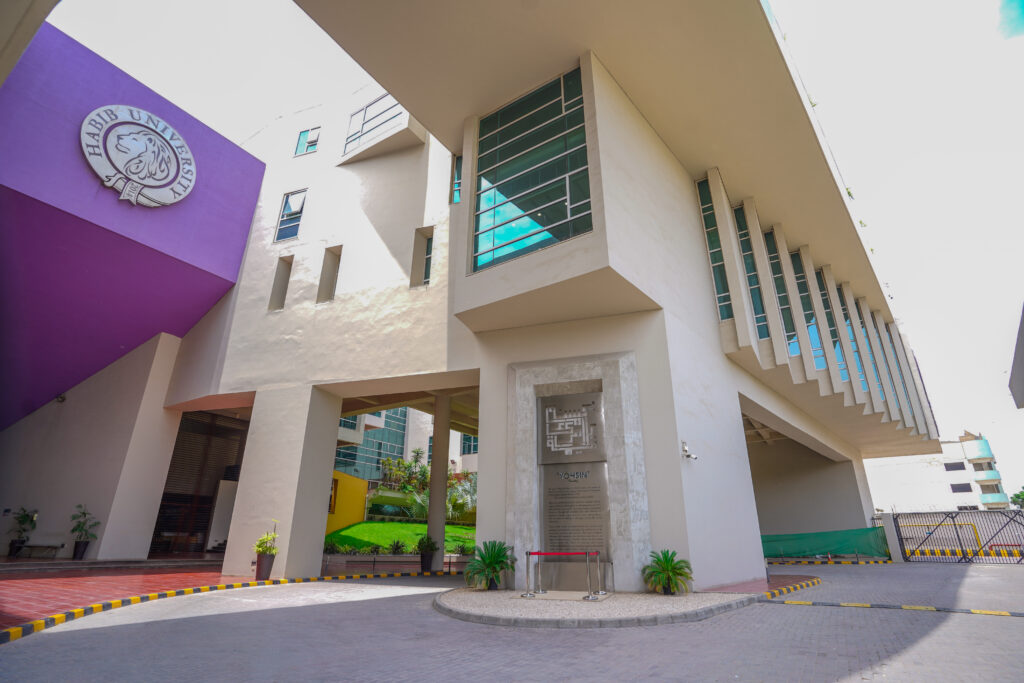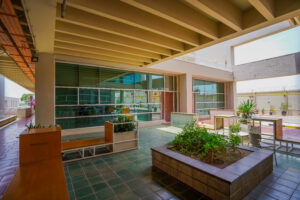Stories
Habib University — A New Benchmark for Green Buildings in Pakistan
Habib University in Karachi has made history as the first institution in South Asia and the MCA region (Middle East, Central Asia, and Turkey) to earn EDGE Advanced Green Building Certification from the International Finance Corporation (IFC).
Habib University in Karachi has made history as the first university in South Asia and the MCA region (Middle East, Central Asia, and Turkey) to earn EDGE Advanced Green Building Certification from the International Finance Corporation (IFC). This achievement marks a significant milestone for sustainable construction and campus design in Pakistan, setting a new standard for environmental responsibility in the region.
Wasif A. Rizvi, President of Habib University, shared, “This milestone affirms Habib University’s resolve to ‘walk the talk’ of sustainability and epistemic reparation. It reflects our belief that institutions must lead not only in knowledge, but in conscience—creating models of learning that heal, regenerate, and sustain the world around them.” His words resonate throughout the sprawling 45,000 square meter campus, which was meticulously designed with sustainability in mind.

Thanks to smart architectural planning and innovative passive design features, Habib University has achieved remarkable results: 40% energy savings alongside significant reductions in use of both water and embodied carbon in building materials. According to Azher Abbas, Head of Infrastructure, Planning, and Development, these measures don’t just look good on paper—they have a palpable impact. “At Habib University, we’ve set a new standard in sustainable campus design with our EDGE Advanced Certification. This campus was built smart, built green, and built for the future, reflecting our commitment to climate-conscious infrastructure that serves generations to come.”
The energy saved each year is enough to power 230 Pakistani households; water savings match 1,200 water tankers, and the emissions avoided are equivalent to planting 2,200 trees and letting them thrive for a decade.
By weaving sustainability into its design and operations, Habib University not only redefines the possibilities for green campuses in the region but also inspires other institutions to follow suit. The perspectives of those leading the charge illustrate the vision and commitment driving this transformation, making it clear that this achievement is about much more than certifications. It’s about shaping a future where learning and environmental stewardship go hand in hand.

“Habib University’s achievement sets a powerful example for higher education institutions across South Asia, the Middle East, Central Asia, and Türkiye, demonstrating how innovative design and sustainable practices can be embedded into construction and long term growth strategies,” said Aftab Ahmed, Regional Director for the Middle East, Pakistan & Afghanistan at IFC. “This milestone also reflects IFC’s strong commitment to scaling sustainable building solutions that advance resource efficiency and help build a more sustainable future for Pakistan.”
The certification is part of IFC’s wider green building initiative in Pakistan, which aims to strengthen the ecosystem for sustainable construction through policy improvements, awareness campaigns, and capacity building among stakeholders in both public and private sectors. The project is funded by the CIFPAK facility, a climate-related blended finance program managed by IFC in partnership with the UK Foreign Commonwealth & Development Office.
Looking Ahead
Habib University’s recognition as an EDGE Advanced campus is not only a national milestone but also a regional first. It demonstrates how higher education institutions can integrate sustainability into their design and operations, setting a precedent for others in the region to follow.

